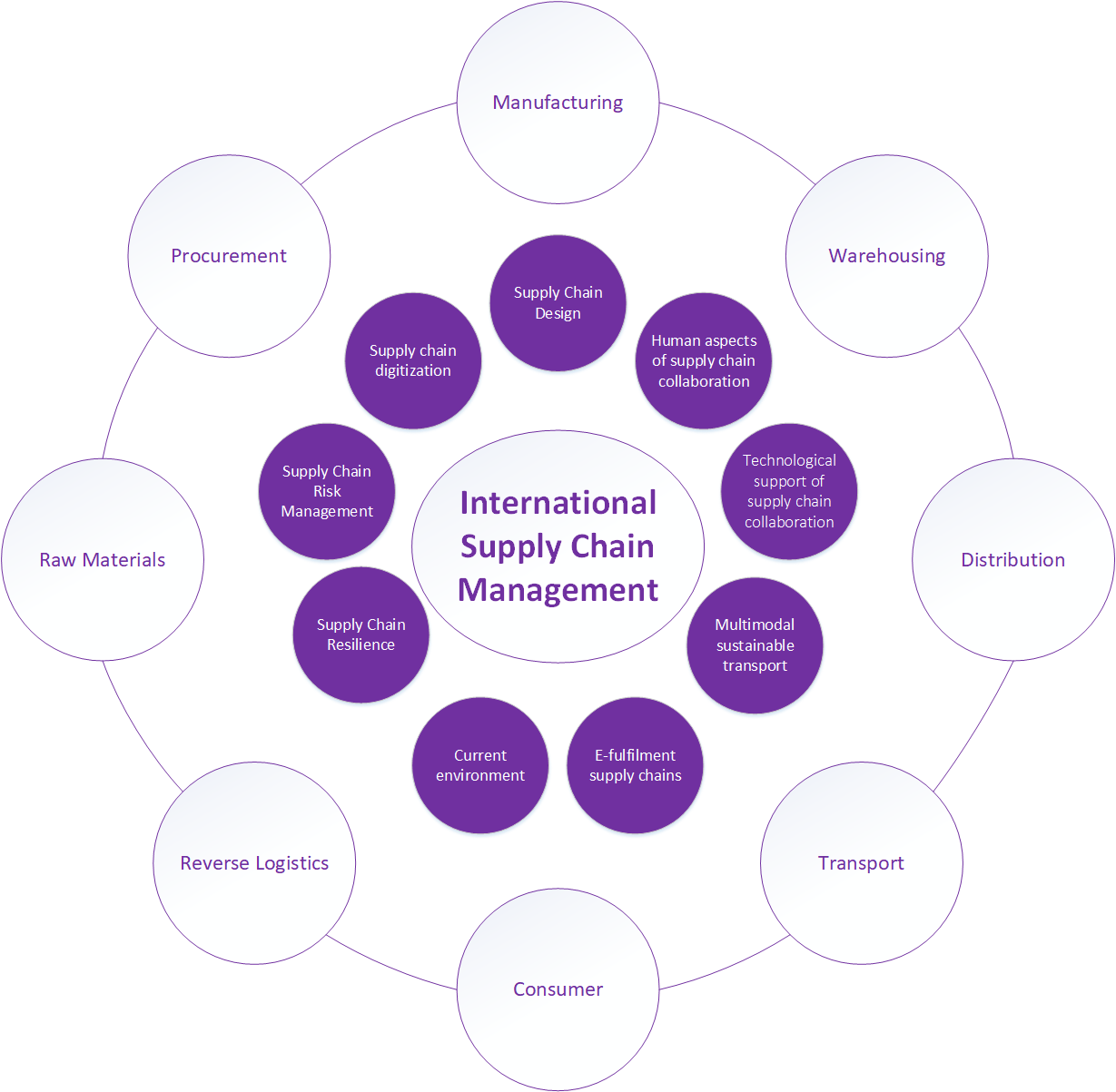MAR7008V International Supply Chains and Data Management
Module description
This module introduces students to supply chain management. It develops hands-on skills for decision making based on an integrated approach to quantitative decision methods using spreadsheets.
Module aims
The aim of the module is to:
• Develop optimisation problem solving skills.
• Understand risk analysis through simulation.
• To provide an insight into the design and management of International Supply Chains.
• To provide a sound understanding of the impact of current issues on supply chain
management.
Assessed learning outcomes
At the end of the module the learner will be expected to be able to:
1. Solve optimization problems using a spreadsheet.
2. Report results appropriately in a professional document.
3. Apply and analyse supply chain design, using, o.a., the SCOR model.
4. Evaluate the impact of supply chain collaboration on supply chain performance.
5. Be aware of current issues in the area of supply chain management.
Topics
This course consists of 2 parts:
1. Supply Chain Management: different aspects of supply chain management will be covered, including topics surrounding Global Supply Chains and Contemporary Supply Chains.

2. Data Management: In order to model and analyze the goods flow they very often use Excel (or any other spreadsheet program).In this course we will focus on 3 main topics:
- Descriptive Statistics; In descriptive statistics the input is mostly a dataset with a lot of numbers. In order to
compare the different subsets it is recommended to reorganize the data and then make attractive visuals for a first impression before the advanced statistical tests will be applied.
- Optimization: In optimization it is the objective to make a model and to let Excel calculate a minimum or maximum value for one or more decision variables. For example what is the quantity that generate the least cost? (EOQ).
- Risk Analysis: In risk analysis the calculations are based on an uncertain outcome. Therefor we will use and learn about simulations to forecast some outcome.
Type of instructions
You will deepen your knowledge through a combination of individual coursework, group work with presentations, and guest lectures given by experts and professionals.
